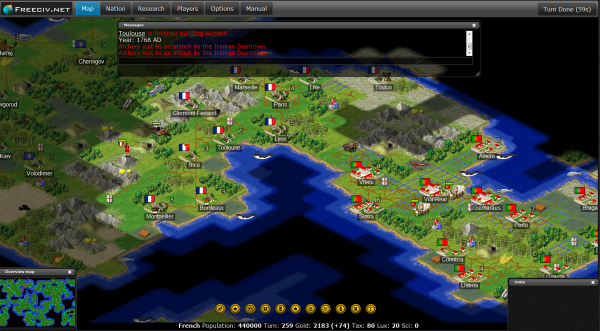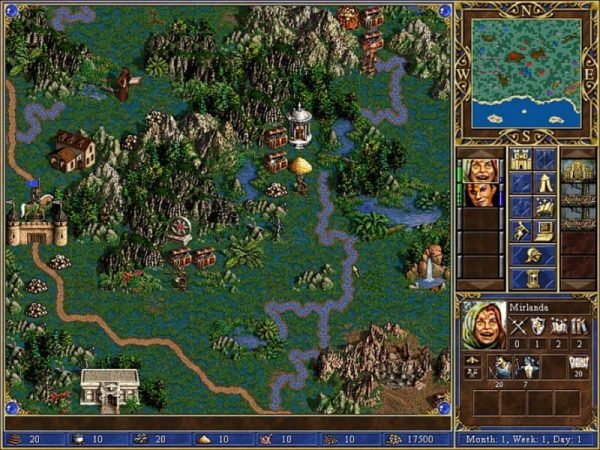The first computer game I ever played, if I remember correctly, was Oregon Trail. It was on an Apple IIe at the elementary school I attended. We would gather around the computer, enter the pioneers’ names using our classmates’ names, and try to make it to Oregon. We would laugh as our friend got dysentery, become frustrated when our wagon would sink while fording a river, and be excited as we shot 4,300 lbs of buffalo (but could only carry 200 lbs of meat back with us). We would always look forward to playing it.
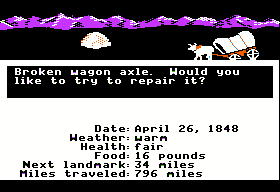
The Oregon Trail (mid-1980s)
Once computers made their way into households, I played games on our family computer. My dad got copies of Wheel of Fortune and Jeopardy (on 5¼″ floppy disks!), which I played incessantly on our MS-DOS computer.
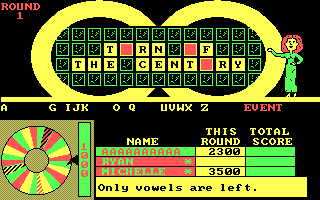
Wheel of Fortune (1987)
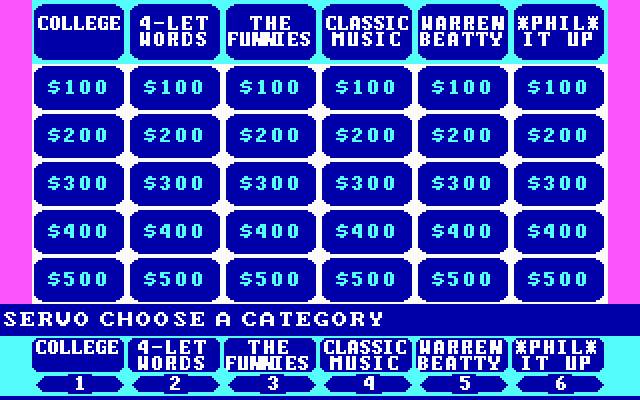
Jeopardy! Junior Edition (1987)
After I played these games to exhaustion, I looked for more. In the small town I grew up in, there were no computer or software stores. So every time we went to the local Walmart, I would trawl through the small collection of $5-$10 computer games in the electronics department. My best friend would do the same, and we would share our finds — from ports like Ninja Gaiden (terrible) and Golden Axe (addictively fun), to originals like Duck Tales (not the NES game) and War in Middle Earth (a bit too deep for 9-year-olds).
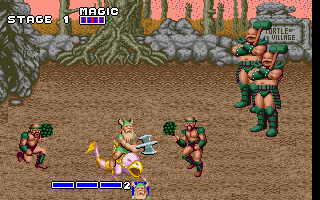
Golden Axe in glorious VGA. It’s amazing how long this game stuck around through the years.
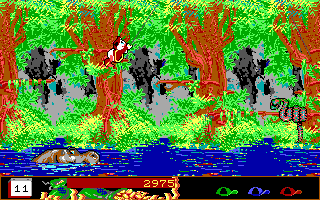
Duck Tales: The Quest For Gold was a mixed bag of mini-games, but we still had a lot of fun playing it.
My best friend found games like Barbarian, a one-kill fantasy arcade game from Psygnosis, and Lightspeed, a crude but interesting game of traveling through space and meeting with aliens. At the time, we were violently opposed to reading manuals, so any controls or features had to be learned by experimentation or chance.
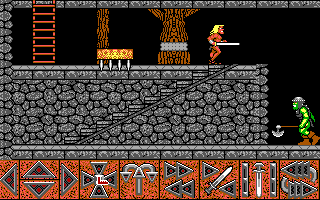
What we would find on the next screen of Barbarian was always a surprise.
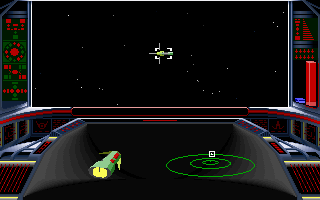
Lightspeed, a space exploration game that fascinated us but could also frustrate.
My dad would also get educational games, hoping that we would use the computer to improve ourselves (a big selling point in early computer marketing). Luckily, games like the Carmen Sandiego series were actually pretty good.
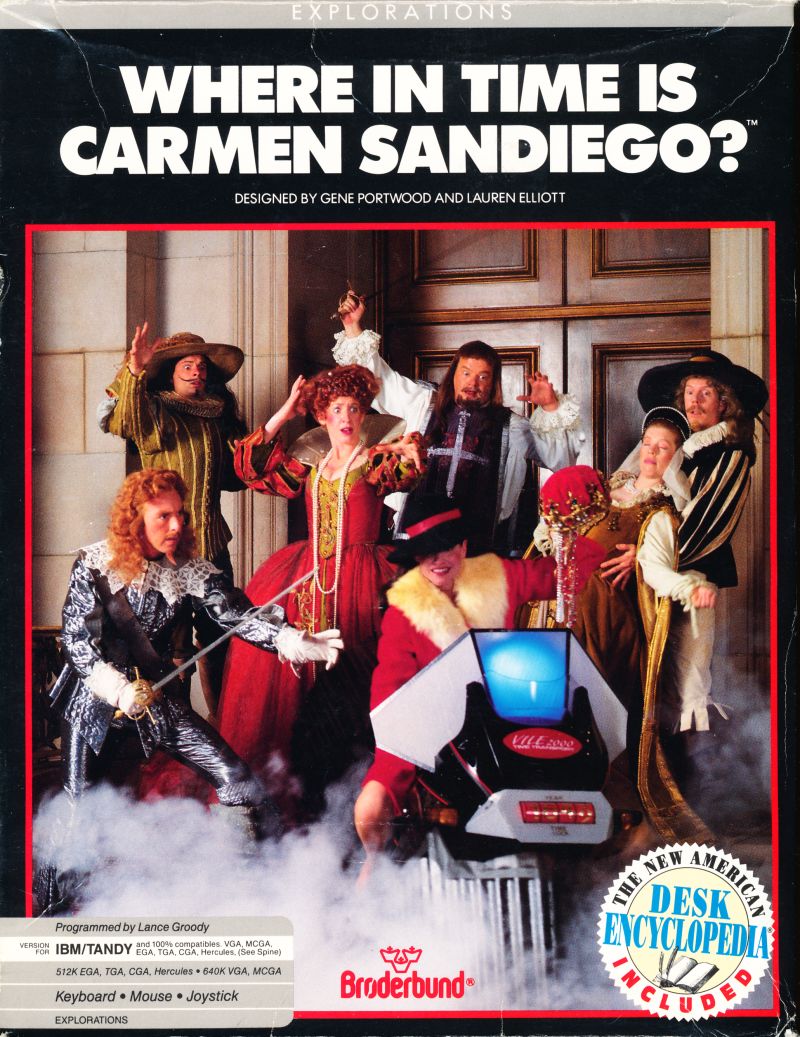
Man, I miss the box covers of early games.
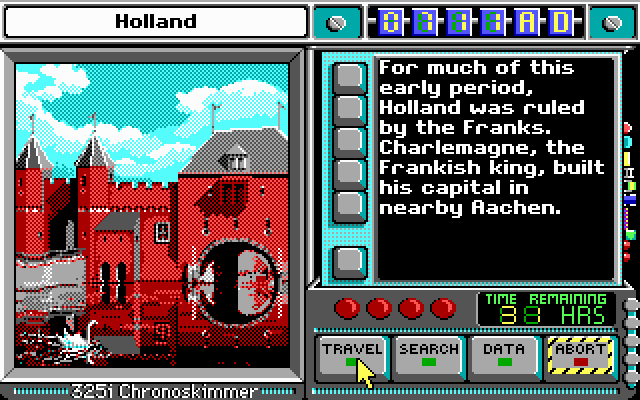
Where In Time Is Carmen Sandiego?
When our family made the occasional trip to the big city (Des Moines, Iowa), we would visit one of the software stores of the time, Electronics Boutique or Babbage’s. There they had wall after wall of games and software. Like a kid in a candy shop, I would pick up the boxes, looking at the screenshots and reading the flavor text on the back.
That was where I was drawn to a specific box. It was a different shape, not the standard boring rectangle. It showed an Arabian Nights-esque figure jumping over spikes, and was published by the trusted Brøderbund company (known for Carmen Sandiego and other games). It promised adventure. It was called Prince of Persia.
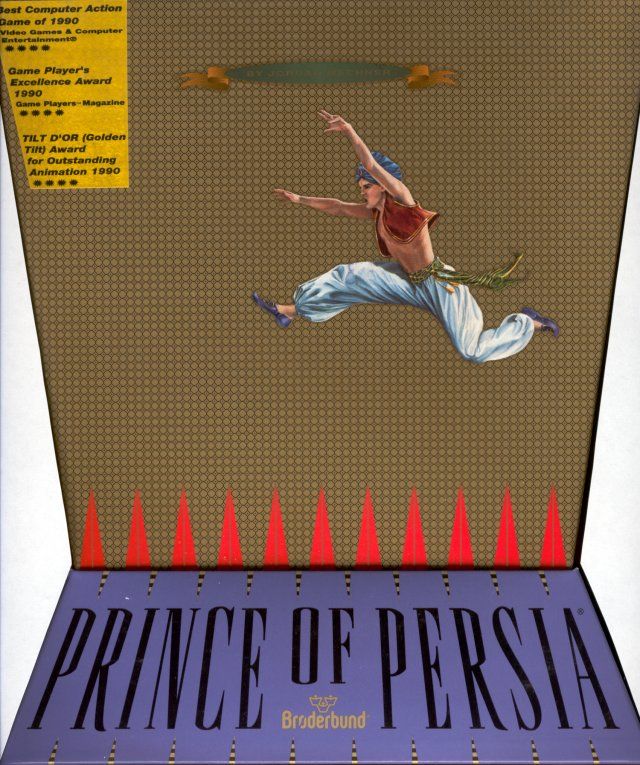
Prince of Persia box.
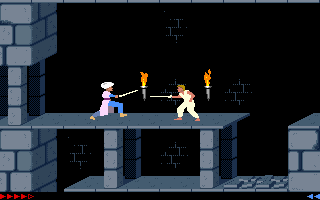
Prince of Persia, another platformer with almost-one-hit kills.
It was the beginning of what I consider the golden age of PC gaming. Many games up to that time were “small” according to future standards — made by individuals or very small teams, and consisting of simple rules and a relatively small set of levels/maps. This would change and expand throughout the 1990s.
As kids, all of the games we played were chosen by what was available, and by their names and box art. This time also began my lifelong practice of never finishing games. Nevertheless, we had a huge amount of fun playing them as much as possible, and moving on to something else when we got stuck.
All images are from Mobygames, the video game database.

 I’m writing the game in
I’m writing the game in 